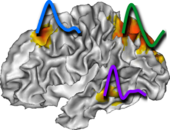pyhrf.xmlio module¶
-
exception
pyhrf.xmlio.DeprecatedXMLFormatException¶ Bases:
exceptions.Exception
-
class
pyhrf.xmlio.Initable¶ Bases:
objectAbstract class to keep track of how an object is initialised. To do so, it stores the init function and its parameters. The aim is to use it in a user interface or to serialize objects. It also allows to add comments and meta info on init parameters.
-
assert_is_initialized()¶
-
check_init_obj(params=None)¶ check if the function used for init can be used in this API -> must allow **kwargs and args. All arguments must have a value: either a default one or specified in the input dict *params
-
from_ui_node¶
-
get_arg_for_ui(a)¶
-
get_arg_from_ui(a)¶
-
get_init_func()¶
-
get_parameters_comments()¶
-
get_parameters_meta()¶
-
get_parameters_to_show()¶
-
init_new_obj()¶ Creates a new instance
-
set_arg_translation(a, t)¶ Set the display name of argument a as t
-
set_init(init_obj, **init_params)¶ Override init function with init_obj and use init_params as new init parameters. init_obj must return an instance of the same class as the current object. Useful when the object is not instanciated via its __init__ function but eg a static method.
-
set_init_param(param_name, param_value)¶
-
to_ui_node(label, parent=None)¶
-
-
class
pyhrf.xmlio.UiNode(label, parent=None, attributes=None)¶ Bases:
objectStore data hierarchically to be used in a Qt model/tree view setting. Also store additional node-specific data as attributes (in a dict). Attributes must only contain strings.
The resulting data structure is:
This structure is similar to DOM.
Features: - can be instanciated from any python object that can
be serialized into human-readable strings: bool, int, float, string, numpy scalars, numpy arrays. It also support container types (list, dict, OrderedDict) as long as their items are also serializabl into human-readable strings. See static method from_py_object.
#TODO: set and tuple #TODO: test unicode
-
add_child(child)¶
-
child(row)¶
-
childCount()¶
-
from_py_object¶
-
from_xml¶
-
get_attribute(attr_name)¶
-
get_children()¶
-
has_attribute(attr_name)¶
-
is_leaf_node()¶
-
label()¶
-
log(tabLevel=-1)¶
-
serialize_attributes()¶
-
set_attribute(attr_name, attr_value)¶
-
set_label(label)¶
-
to_xml(pretty=False)¶ Return an XML representation (str) of the Node and its children.
-
type_info()¶
-
unserialize_attributes¶
-
-
pyhrf.xmlio.from_xml(sxml)¶
-
pyhrf.xmlio.numpy_array_from_string(s, sdtype, sshape=None)¶
-
pyhrf.xmlio.protect_xml_attr(sa)¶
-
pyhrf.xmlio.read_xml(fn)¶
-
pyhrf.xmlio.to_xml(obj, label='anonym', pretty=False)¶ Return an XML representation of the init state of the given object obj.
-
pyhrf.xmlio.unprotect_xml_attr(sa)¶
-
pyhrf.xmlio.write_xml(obj, fn)¶


